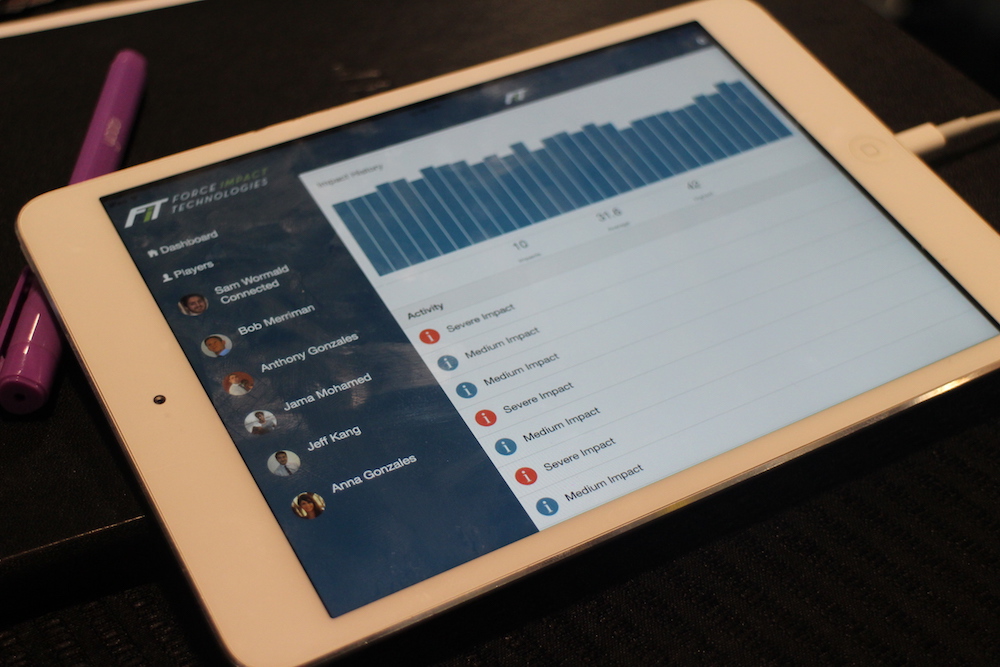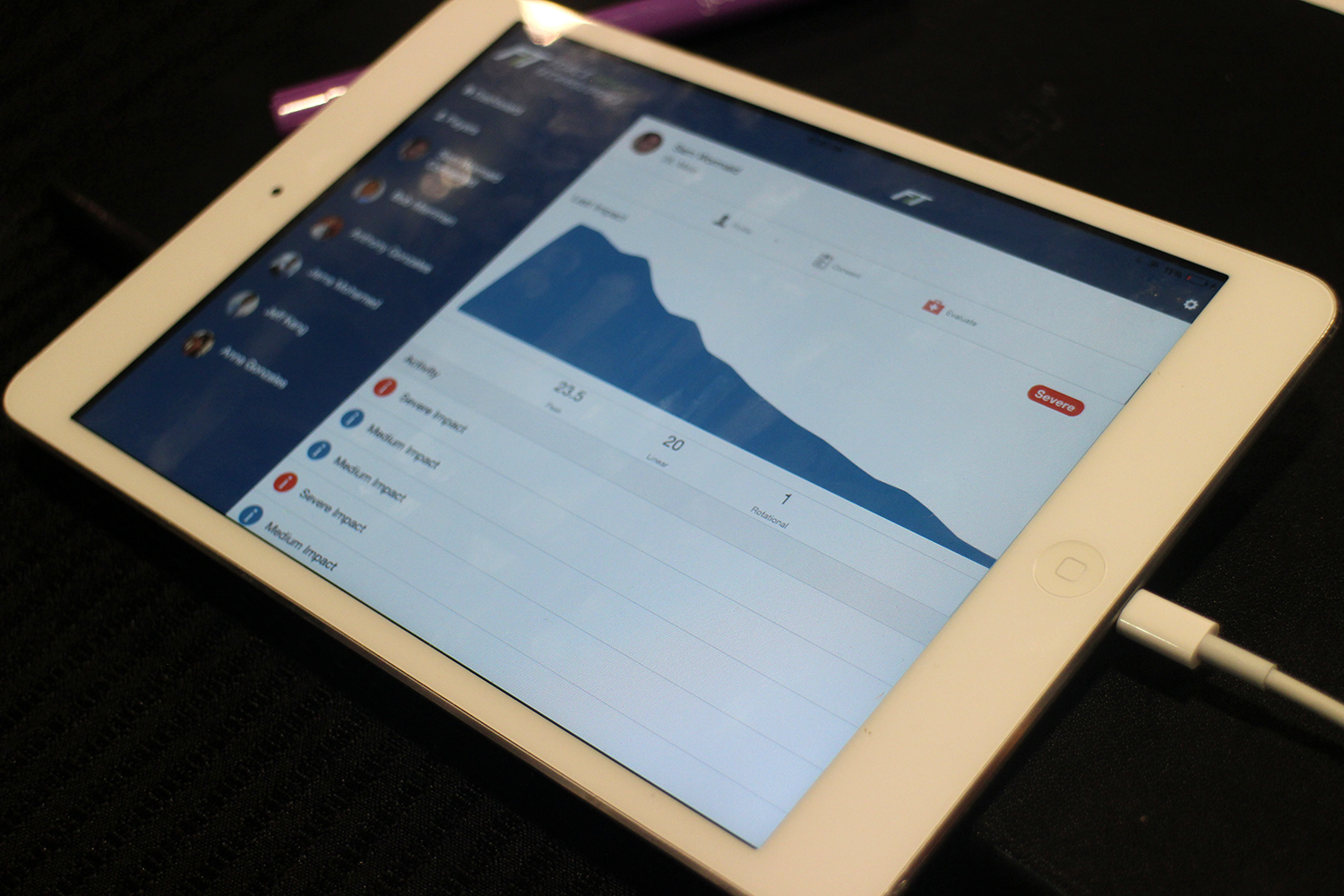Amid all the companies debuting silly new fitness trackers and niche sports wearables at CES 2016, a small company from Los Angeles quietly unveiled the future of sports safety and precaution. This company, aptly named Force Impact Technologies, took to the showroom floor in Eureka Park armed with the FITGuard, an innovative mouthpiece designed to help athletes avoid risking head injuries. Considering the controversial nature of concussions in today’s athletics, the folks at Force Impact couldn’t have manufactured this revolutionary mouthpiece at a better time.
Under the teeth (so to speak), the mouthpiece features a series of LED lights and state-of-the-art sensors geared towards detecting absorbed force. After someone is on the bad end of a big hit, the mouthpiece’s LED lights glow in three different colors. A flashing green display represents a fairly low impact sustained, flashing blue means a bit more force was felt, while red indicates the highest probability of injury.
Technically speaking, the mouthpiece continuously samples rates of acceleration for those wearing it. When the wearer’s acceleration increases, the FITGuard’s sampling rate also increases until it reaches certain thresholds. Once at these thresholds (or past them), the mouthguard then lights up with the corresponding colors listed above. Moreover, users either have the ability to utilize preset thresholds set up by Force Impact itself, or create their own user-specified ranges.
Aside from the visual display given off from the mouthpiece, the results of the impacts are sent to a companion smartphone application. Users have the ability to keep track of any accrued incidents and document self-reported symptoms all within an easy-to-use interface. The app even displays a relative risk percentage based on the impact of the incident against user age, weight, and gender selections. Any data collected quickly uploads to the cloud, allowing Force Impact Technology to analyze its accuracy to continue to improve the device.
With cases of chronic traumatic encephalopathy (CTE) continuing to alarm researchers and doctors, Force Impact Technologies’ FITGuard represents a viable solution to a horrific recent trend. With concussions and their controversial nature threatening to decimate sports like football and rugby, it’s might only be a matter of time before the FITGuard (or something like it) becomes an industry norm. Preorders of the device are currently available for $130, with Force Impact Technologies expecting to ship first models by April 2016.




